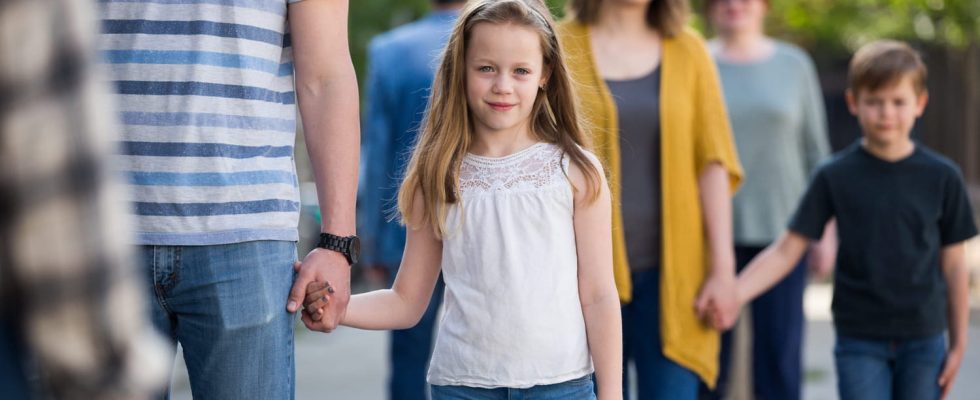Faced with a stranger, a young child does not always know how to react. It is the role of the parents to teach him some reflexes to avoid certain dangers. Jean-Christophe Couvy, national secretary of the SGP Police FO Unit union, shares his experience and sound advice with us.
By going to school alone, by going to his sports club or simply by picking up a baguette at the local bakery, a child may be led to come face to face with a stranger and possible dangers. Parents often dread the moment when their child will ask them to go to the corner store alone, or to stay outside with their friends. How to prepare your child to face strangers? The national secretary of the SGP Police FO Unit union, Jean-Christophe Couvy, gives us his advice.
Above all, Jean-Christophe Couvy, who is also a father, recommends that parents make children aware of the dangers that may exist outdoors, “without scaring them or blocking them”. Afterwards, “The difficulty is define what a stranger is to a child“, explains the police representative. Generally, young children cannot tell the difference and can quickly trust anyone, especially if they are not warned. “A stranger is a person who has not been introduced to him, who is not part of our entourage and whom we do not trust.“, explains the expert. By explaining this to him, teach him the following reflexes:
The reflexes to teach your child in front of a stranger
Certain situations must also be explained to children so that they predict a danger.
- If the child comes across a stranger asking for helphe must know that an adult always asks for help from another adult and not from a child.
- NOTDon’t talk to strangers, even if they seem nice.
- If a stranger presents him in the street a small dog or a small catthe child should not let his guard down or give him his trust, because they are often used to enter into a relationship with the child.
- Same thing if a stranger offers sweets, or he introduces himself to him by saying that he is a friend of mom and dad, or even if he calls him by his first name.
- Also teach your child how to react when he senses danger. He should be able to scream loudly and try to run away to a safe place he knows.
- “If he can’t, he must try to approach a STOP sign to be visible. The idea is that the more noise he makes and the more resistance he shows, the less the kidnapper will attach himself to wanting to take him. These people usually don’t want to waste too much time with their victim, or even be noticed.” adds Jean-Christophe Couvy.
- If the child has a mobile phone, he must also know how to dial 112, the European emergency number, “who locates the calls”.
- Finally, it is important to ppresent your child with trusted people to whom he can turn and talk, if one day he encounters a problemsuch as a local merchant or a police officer for example.
“The more the child makes noise and shows resistance, the less the abductor will attach himself to wanting to take him”
Faced with suspicious behavior or an abnormal situation, an adult witness has the responsibility to intervene to protect the young victim. “When we see a child struggling or screaming, we must react. We must speak to the child, ask him if he knows this adult. We must also quickly call the police, film the scene and the aggressor to have information”, advises the union secretary of the SGP Police FO Unit.
The child must be able to tell what happened and feel confident despite the situation. It is therefore important to don’t scare him, or even be too rough with him : explain who you are, that you are there to help him, reassure him and suggest that he call his parents.
Thanks to Jean-Christophe Couvy, national secretary of the SGP Police FO unit union.
